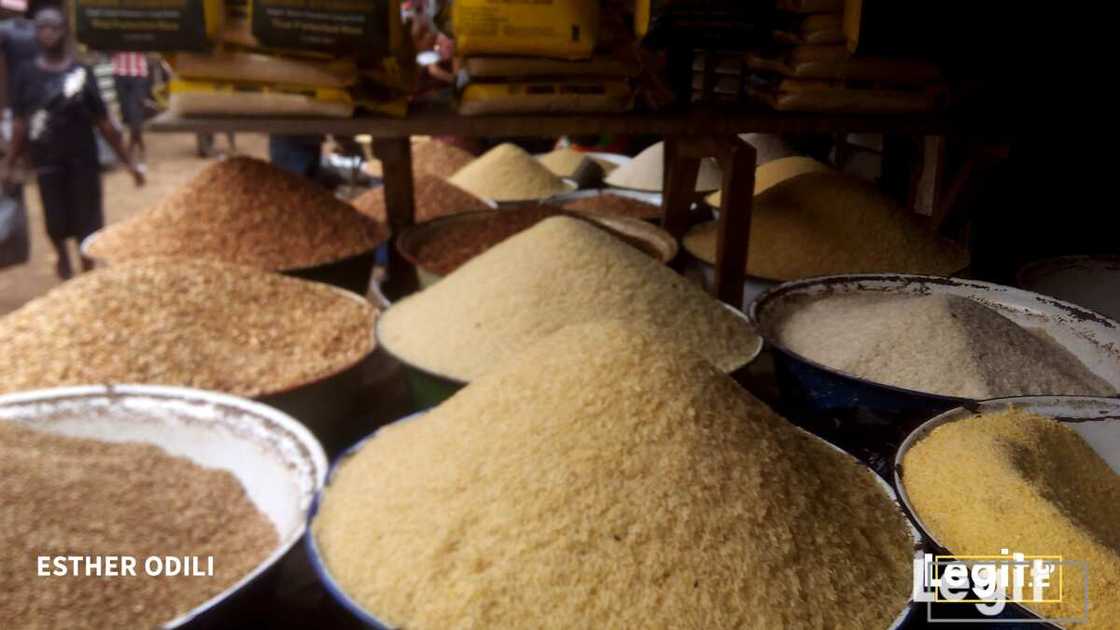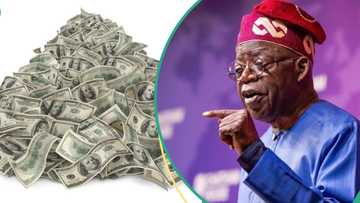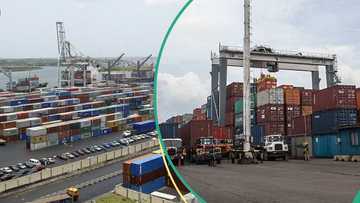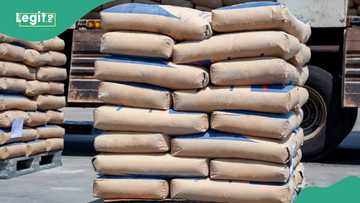FG Waives N97 Billion Import Duties On Rice, Others, Predicts 18% Price Drop By Year-end
- The federal government has implemented several measures since 2024 to control the rising food inflation
- While none of these methods seems to show any immediate impact, the recent decline in food prices is being traced to the import waivers
- The waivers exempted essential food items from paying import duties, in the hopes of transferring lower prices to Nigerians
CHECK OUT: Education is Your Right! Don’t Let Social Norms Hold You Back. Learn Online with LEGIT. Enroll Now!
Legit.ng journalist Ruth Okwumbu-Imafidon has over a decade of experience in business reporting across digital and mainstream media.
At the peak of the inflation in 2024, the federal government of Nigeria introduced an intervention to waive import duties for essential food items, particularly rice, sorghum and maize.
This was to address the food crisis across the country as basic foods became unaffordable for the common man.
Data obtained from the Nigeria Customs Service showed that the import waivers on food items from 2024 to 2025 amounted to N97 billion.

Source: UGC
The Comptroller-General of Customs, Adewale Adeniyi, explained in the document that the service had complied with the government’s import waivers on key food items.
The data covered the import duties waived from July to December 2024 and from January to March 2025.
FG predicts further drop in food prices
Adeniyi stressed in the document that the federal government's waivers valued at N97 billion so far contributed to the recent food price reduction, the PUNCH reports.
He said:
“The NCS’s duty exemptions on food imports have contributed to recent food price reductions, with effects seen both immediately and over time. The Q1 2025 waivers on maize, N45.3 billion free-on-board value, rice N751.6 million, and sorghum, N2.3 billion, also contributed to lower prices by 12 -18% this year.
“At the same time, the larger exemptions from 2024 on rice, N45.9 billion free-on-board value and wheat, N2.8 billion, are now showing their full effect after taking time to work through the supply chain.”
Inflation remains high despite waivers
Findings, however, showed that although the temporary waivers started in July 2024, the impact was not felt by the average Nigerian.
Food inflation continued to push upward, eventually reaching a peak of 39.8% in November 2024.
Inflation only started to abate this year (2025) after the National Bureau of Statistics rebased the Consumer Price Index (CPI), changing the base year to 2024.
Since then, inflation has gone up again, with the last data from NBS showing that Headline inflation rose to 24.23 while food inflation rose to 21.79.
Adeniyi, however, credited the recent decline in food prices, particularly rice, to the cumulative effects of the waivers.
He noted that by the end of 2025, a further decline in food prices would moderate food inflation.

Source: Original
Adeniyi also noted that the Nigeria Customs Service (NCS) would be launching innovative solutions to modernise its processes and procedures.
Buhari's ex-aide predicts when food prices will rise
Legit.ng had earlier reported that farmers and experts did not expect the decline in food prices to last for long.
Mr Dolapo Bright, a former Special Adviser to the immediate past President, Muhammadu Buhari, and also a farmer, noted that the price decline was seasonal.
He predicted that the onset of the rainy season would lead to another increase in the prices of several food items."
PAY ATTENTION: Сheck out news that is picked exactly for YOU ➡️ find the “Recommended for you” block on the home page and enjoy!
Proofreading by James Ojo, copy editor at Legit.ng.
Source: Legit.ng





